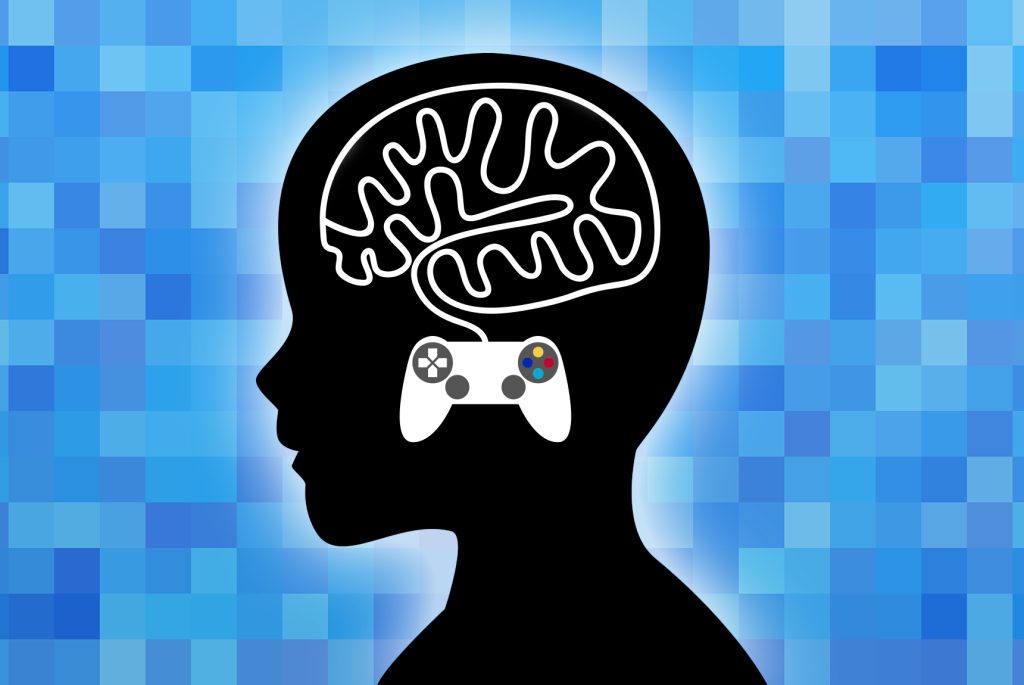Video games have become more sophisticated, strikingly realistic, and immersive, entertaining, in recent years. However, with this growth comes a divided debate. While some view video gaming as a harmless pastime or even a tool for learning and relaxation, others raise concerns about its potential downsides and adverse mental health effects.
This article weighs in on the impact of video games on mental health, highlighting benefits such as stress relief and cognitive development while also considering the associated risks of excessive gaming. But while you are here, we dive right in, check out the Vortex Online Gaming and other exciting real money titles.
Potential Mental Health Benefits of Video Games
When done in moderation, video games can improve mental health in the following ways:
Stress relief and relaxation
One of the most notable mental health benefits of video games is their ability to help people unwind after a long, stressful day. Sometimes you just need to step back from real life for a while, and a good video game can provide that perfect escape. It allows your brain to focus on something fun, engaging, and interactive, taking your mind off whatever has been weighing you down.
Cognitive stimulation
Video games can also challenge your brain in ways that can boost cognitive skills. For example, strategy-based games, puzzles, role-playing adventures, and some action games require quick decision-making, problem-solving, multitasking, pattern recognition, and memory recall. Regularly engaging in these mentally demanding tasks can enhance your ability to process information, adapt to new situations, and think creatively, not just in games, but also in real-life scenarios.
Mood enhancement
Playing a game you enjoy can uplift your mood if you’re feeling sad, help you overcome boredom, and replace negative emotions with a sense of excitement or purpose. For instance, clearing a tough level, defeating a challenging boss, or making notable progress in your favorite game brings a satisfying rush of pride and achievement.
Social connection
While many often associate gaming with solitude and isolation, modern video games are increasingly becoming a highly social activity. Most games today feature online multiplayer platforms, voice chats, and in-game communities, enabling players to connect with friends or form new ones from around the world. For those who struggle with in-person interactions, video games can offer a comfortable space for communication, collaboration, and building a sense of belonging.
Negative Mental Effects of Excessive Video Gaming
While video gaming can offer plenty of benefits, it can have adverse mental effects when done without moderation. Below are some of the ways video games can have a negative impact on a person’s mental health.
Addiction and overuse
One of the biggest concerns with video games is the risk of developing an unhealthy dependence on them. For some players, gaming can quickly shift to a compulsive activity that consumes hours and interferes with other responsibilities. Compulsive gaming can affect work, school, relationships, and even basic self-care routines like getting enough sleep or eating well. Before you know it, playing becomes the main focus of the day, and in more serious cases, it becomes an addiction.
Addiction, whether to gaming or anything else, is a mental health condition that can trigger withdrawal symptoms, irritability, and even anxiety when you’re not engaging in the activity.
Isolation
While gaming can be a social activity, it can also have the opposite effect when it completely replaces face-to-face interaction. When you spend excessive time in front of a screen, you may gradually begin to withdraw from friends, family, and real-world activities. This makes it easier for mental health issues like depression or anxiety to kick in.
Physical health impacts
When you’re playing video games for an excessively long period, it often means you’ll be sitting in one spot for hours. This can take a toll on your body, resulting in poor posture, eye strain, headaches, and repetitive strain injuries. Lack of physical activity can also lead to weight gain and other long-term health problems.
When your body feels tired, tense, or unwell, it can directly affect your mood and mental well-being, increasing your stress levels and even contributing to anxiety or depression.
Negative cognitive effects
While video games can boost mental skills, excessive gaming, especially with fast-paced or highly stimulating games, can have the opposite effect. When you spend too much time immersed in the virtual worlds of video games, it can lead to shorter attention spans and reduced concentration in real life. In some instances, overexposure to violent or overly intense games may even desensitize players to violence and subtly influence their thoughts and behavior over time.
Mood disturbances
As much as video games can enhance your mood, they can also bring it down, especially when things don’t go as planned. For example, repeated losses, encounters with toxic online players, or frustrating issues like lag can quickly lead to feelings of anger and disappointment.
For some people, the emotional highs and lows of gaming can become so intense that they spill over into real life. They might find themselves snapping at family or friends, experiencing sudden mood swings, or carrying a lingering sense of frustration long after the console is turned off. In more serious cases, constant exposure to stress or negativity in games can feed into deeper issues like anxiety or depression, especially if gaming becomes the primary source of self-worth or validation.
Conclusion
So, are video games good for your mental health? They can be, depending on what you play, how long you play, and your reasons for playing. When enjoyed as part of a balanced lifestyle, video games can bring joy, foster social connections, and even sharpen the mind. However, if they begin to replace sleep, strain relationships, or take priority over real-life responsibilities, the drawbacks can quickly outweigh the benefits.

